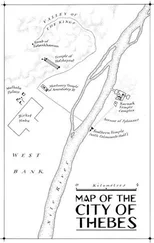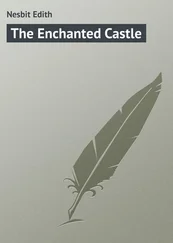I represented to her that even if we had to perform these duties, the day would still present some margin for other toils and recreations. But she refused to see the matter in any but the greyest light. She was very unreasonable, my Laura, but I could not have loved her any more if she had been as reasonable as Whately.
“I’ll speak to Mrs. Dorman when she comes back, and see if I can’t come to terms with her,” I said. “Perhaps she wants a rise in her screw. It will be all right. Let’s walk up to the church.”
The church was a large and lonely one, and we loved to go there, especially upon bright nights. The path skirted a wood, cut through it once, and ran along the crest of the hill through two meadows, and round the churchyard wall, over which the old yews loomed in black masses of shadow. This path, which was partly paved, was called “the bier-balk,” for it had long been the way by which the corpses had been carried to burial. The churchyard was richly treed, and was shaded by great elms which stood just outside and stretched their majestic arms in benediction over the happy dead. A large, low porch let one into the building by a Norman doorway and a heavy oak door studded with iron. Inside, the arches rose into darkness, and between them the reticulated windows, which stood out white in the moonlight. In the chancel, the windows were of rich glass, which showed in faint light their noble colouring, and made the black oak of the choir pews hardly more solid than the shadows. But on each side of the altar lay a grey marble figure of a knight in full plate armor lying upon a low slab, with hands held up in everlasting prayer, and these figures, oddly enough, were always to be seen if there was any glimmer of light in the church. Their names were lost, but the peasants told of them that they had been fierce and wicked men, marauders by land and sea, who had been the scourge of their time, and had been guilty of deeds so foul that the house they had lived in – the big house, by the way, that had stood on the site of our cottage – had been stricken by lightning and the vengeance of Heaven. But for all that, the gold of their heirs had bought them a place in the church. Looking at the bad hard faces reproduced in the marble, this story was easily believed.
The church looked at its best and weirdest on that night, for the shadows of the yew trees fell through the windows upon the floor of the nave and touched the pillars with tattered shade. We sat down together without speaking, and watched the solemn beauty of the old church, with some of that awe which inspired its early builders. We walked to the chancel and looked at the sleeping warriors. Then we rested some time on the stone seat in the porch, looking out over the stretch of quiet moonlit meadows, feeling in every fibre of our being the peace of the night and of our happy love; and came away at last with a sense that even scrubbing and black-leading were but small troubles at their worst.
Mrs. Dorman had come back from the village, and I at once invited her to a tête-à-tête .
“Now, Mrs. Dorman,” I said, when I had got her into my painting room, “what’s all this about your not staying with us?”
“I should be glad to get away, sir, before the end of the month,” she answered, with her usual placid dignity.
“Have you any fault to find, Mrs. Dorman?”
“None at all, sir; you and your lady have always been most kind, I’m sure—”
“Well, what is it? Are your wages not high enough?”
“No, sir, I gets quite enough.”
“Then why not stay?”
“I’d rather not” – with some hesitation – “my niece is ill.”
“But your niece has been ill ever since we came.”
No answer. There was a long and awkward silence. I broke it.
“Can’t you stay for another month?” I asked.
“No, sir. I’m bound to go by Thursday.”
And this was Monday!
“Well, I must say, I think you might have let us know before. There’s no time now to get anyone else, and your mistress is not fit to do heavy housework. Can’t you stay till next week?”
“I might be able to come back next week.”
I was now convinced that all she wanted was a brief holiday, which we should have been willing enough to let her have, as soon as we could get a substitute.
“But why must you go this week?” I persisted. “Come, out with it.”
Mrs. Dorman drew the little shawl, which she always wore, tightly across her bosom, as though she were cold. Then she said, with a sort of effort—
“They say, sir, as this was a big house in Catholic times, and there was a many deeds done here.”
The nature of the “deeds” might be vaguely inferred from the inflection of Mrs. Dorman’s voice – which was enough to make one’s blood run cold. I was glad that Laura was not in the room. She was always nervous, as highly-strung natures are, and I felt that these tales about our house, told by this old peasant woman, with her impressive manner and contagious credulity, might have made our home less dear to my wife.
“Tell me all about it, Mrs. Dorman,” I said; “you needn’t mind about telling me. I’m not like the young people who make fun of such things.”
Which was partly true.
“Well, sir” – she sank her voice – “you may have seen in the church, beside the altar, two shapes.”
“You mean the effigies of the knights in armour,” I said cheerfully.
“I mean them two bodies, drawed out man-size in marble,” she returned, and I had to admit that her description was a thousand times more graphic than mine, to say nothing of a certain weird force and uncanniness about the phrase “drawed out man-size in marble.”
“They do say, as on All Saints’Eve them two bodies sits up on their slabs, and gets off of them, and then walks down the aisle, in their marble” – (another good phrase, Mrs. Dorman) – “and as the church clock strikes eleven they walks out of the church door, and over the graves, and along the bier-balk, and if it’s a wet night there’s the marks of their feet in the morning.”
“And where do they go?” I asked, rather fascinated.
“They comes back here to their home, sir, and if anyone meets them—”
“Well, what then?” I asked.
But no – not another word could I get from her, save that her niece was ill and she must go. After what I had heard I scorned to discuss the niece, and tried to get from Mrs. Dorman more details of the legend. I could get nothing but warnings.
“Whatever you do, sir, lock the door early on All Saints’Eve, and make the cross-sign over the doorstep and on the windows.”
“But has anyone ever seen these things?” I persisted.
“That’s not for me to say. I know what I know, sir.”
“Well, who was here last year?”
“No one, sir; the lady as owned the house only stayed here in summer, and she always went to London a full month afore the night. And I’m sorry to inconvenience you and your lady, but my niece is ill and I must go on Thursday.”
I could have shaken her for her absurd reiteration of that obvious fiction, after she had told me her real reasons.
She was determined to go, nor could our united entreaties move her in the least.
I did not tell Laura the legend of the shapes that “walked in their marble,” partly because a legend concerning our house might perhaps trouble my wife, and partly, I think, from some more occult reason. This was not quite the same to me as any other story, and I did not want to talk about it till the day was over. I had very soon ceased to think of the legend, however. I was painting a portrait of Laura, against the lattice window, and I could not think of much else. I had got a splendid background of yellow and grey sunset, and was working away with enthusiasm at her face. On Thursday Mrs. Dorman went. She relented, at parting, so far as to say—
Читать дальше












